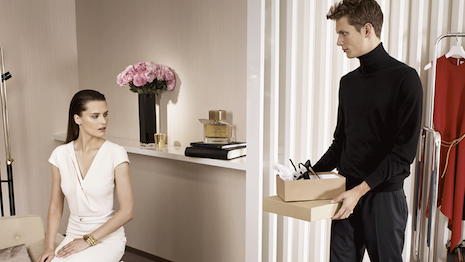- About
- Subscribe Now
- New York,
December 2, 2016

Quality tops attributes such as craftsmanship and service as the number one defining attribute affluent consumers use to discern a good’s luxury status, according to new research by the Luxury Institute.
Behind quality comes customer service, which more than half of consumers mentioned as a characteristic they associate with luxury. Despite global trends, residents of individual nations have varied priorities when it comes to luxury goods, with differing sentiments towards the value of products.
Luxury Institute’s survey was conducted in the United States, the United Kingdom, France, Germany, Italy, Japan and China, with respondents from about the top 10 percent of earners in their respective countries.
Divided priorities
Customers in the U.K. and the U.S. are more apt than respondents from Japan and China to mention superior customer service as a necessity for luxury. A superior design ranks third, but those in the U.K. and U.S. mention it more frequently than those from other countries.
While superior craftsmanship comes in fourth among global consumers, this attribute is mentioned by 59 percent of U.S. residents, compared to 33 percent across the other six nations.
Personalized offers, loyalty programs and value add-ons were mentioned by less than a quarter of consumers, but those who do define luxury by these points are inclined to say they are improving.
There is a disparity about the general quality of luxury goods. Those in China and Italy are more likely to report improvement in quality, while those in the U.S. are more apt to believe that luxury goods’ quality is declining.
When considering the ideal front line staff in a luxury boutique, courtesy and politeness are most important to affluent shoppers. Product expertise is a close second, with more than half saying they look for this knowledge in the associates they deal with.
Boss on Demand
The survey participants mentioned jewelry and hospitality brands as having the best customer service staff, while real estate and designer shoes got the least nods for their quality of service.
"From our numerous one-on-one discussions with luxury CEOs, we've often heard that a majority of success stems from superior products, but the rest depends on relationship-building expertise and execution of front-line teams," says Milton Pedraza, CEO of the Luxury Institute. "Half of affluent consumers we just surveyed say that luxury sales associates deliver a personalized and relationship-oriented experience, which is encouraging, but it also suggests plenty of room for improvement when it comes to delivering a superior customer experience."
Even with the rise of digital channels, frontline sales staff are far from obsolete, according to results of a survey conducted by InMoment.
The bricks-and-mortar shopping experience no longer exists in a vacuum, with consumers arriving at a store armed with information from research conducted before or even during their trip. However, while shoppers spend about twice as much in-store when they navigate to a brand’s Web site while shopping, their expenditures grow to four times more if they interact with both an associate and the brand’s Web site while in-store (see story).
Share your thoughts. Click here